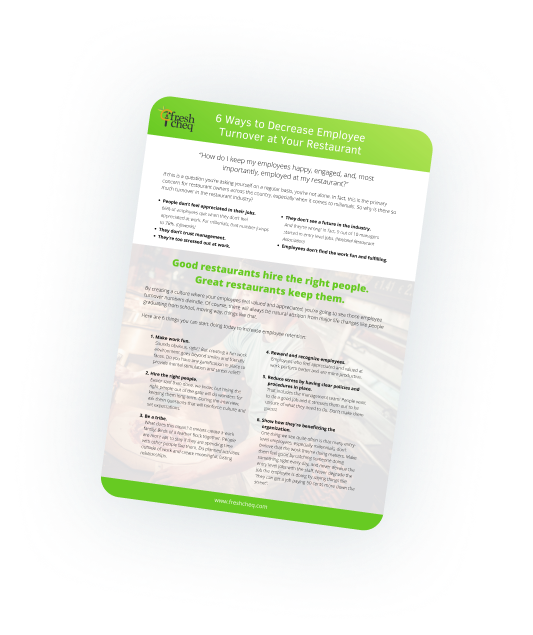If your region has not yet had to make adjustments due to restaurant food waste regulations, begin planning now. In a nation where 1 in 7 people suffer from food insecurity, many states have begun to develop regulations to drastically reduce food waste. The USDA reports that up to 40 percent of all food produced is not consumed. As much as 95 percent of that wasted food ends up in landfills, which produces methane gas, widely accepted as a critical contributor to global climate change. What is your restaurant doing to reduce food waste?
States Are Getting Involved in the Food Waste Crisis
One of the state’s responses to the concerning food waste issue has been restricting the amount of food that is permitted to enter landfills. Another state initiative has been to offer tax breaks to farmers and food related businesses, like restaurants, who donate food rather than throw it away. A couple of states have even promoted contests that reward both citizens and businesses for ideas relating to the reduction of food waste.
Massachusetts
Beginning in 2014, Massachusetts prohibits any business that produces 1 ton or more of organic waste in a week from shipping any organic waste to landfills. These businesses, which include arenas and large institutions are forced to find alternatives to landfills, such as composting.
Vermont
In 2014, Vermont also began the first phase of an organic waste ban. Any business that produced more than 104 tons of organic waste in a year was prohibited from sending the waste to landfills. By next year, the law will apply to all Vermont residents and businesses and it will be illegal to send any food waste to landfills at all.
California
California enacted similar laws as Vermont. As of 2019, businesses that generate 4 cubic feet or more of organic waste per week will be banned from disposing of it at landfills. They are well on their way to meeting their goal of eliminating half of waste that would typically end up in landfills.
Battling Food Waste on a National Level
On a national level, The EPA and the Department of Agriculture began working together since 2015 to establish and work towards a national goal to cut food waste in half by 2030. The execution of a comprehensive plan involves a combination of strategies including:
- less overall food production
- donating excess food to food insecure people
- using food scraps to feed livestock
- composting organic waste
- regulating the quantity of waste dumped into landfills
The City of Austin, Texas is the Real Food Waste Leader
This months marks the deadline set for Austin food based businesses, including restaurants, to submit their plan for compliance with the Organics Diversion Plan. The over arching goal is for Austin to divert 90 percent of what goes into landfills elsewhere by the year 2040.
Restaurant owners in Austin are getting creative to comply with the regulation. One restaurant owner is using smaller cuts of “scrap” meat to add flavor to side dishes. Getting creative with food that would have previously been wasted has saved the restaurant 3-4 ponds of food waste per day.
Austin Resource Recovery is working with food based businesses to develop and execute effective food waste reduction plans. Some of the strategies include:
- Reducing portions
- Selling or donating “ugly produce” or day old baked goods
- Donating leftover food to people in need
- Donating scraps to farms
- Reduce overall food waste
- Composting waste either onsite or through a commercial composting service
If food permitted businesses do not comply, they will receive code enforcement citations.
Food Waste Tracking Reduces Restaurant Food Waste
You have heard the old adage “What we can measure, we can manage.” It applies to food waste. Tracking food waste paves the way for reduction in the following ways:
- Helps management to identify areas for improvement
- Helps purchasing make better decisions to reduce overpurchase
- Creates a culture of awareness
Whether you track food waste with a spreadsheet or a more efficient app, like FreshCheq, the important thing is to stay consistent and set food waste reduction goals.
If none of these regulations are affecting your restaurant, it is likely that some variation of food waste reduction restrictions will be implemented within the next couple of years. Will you restaurant be ready? Consider putting some of the food waste reduction strategies in place now before increased regulations come to your town. If you need help putting a food waste tracking system in place, reach out to the helpful FreshCheq staff who is happy to help. Contact us for a quick demo.



